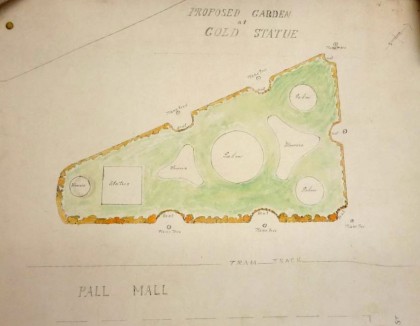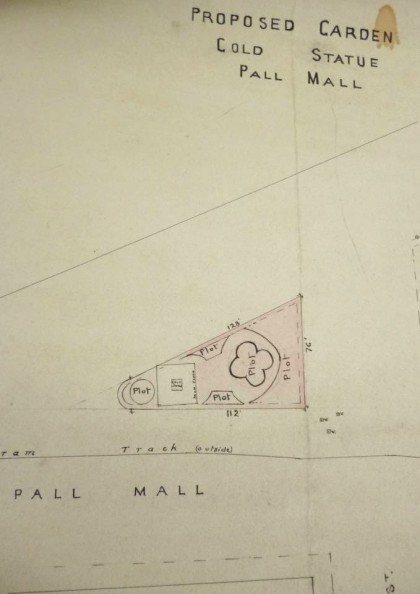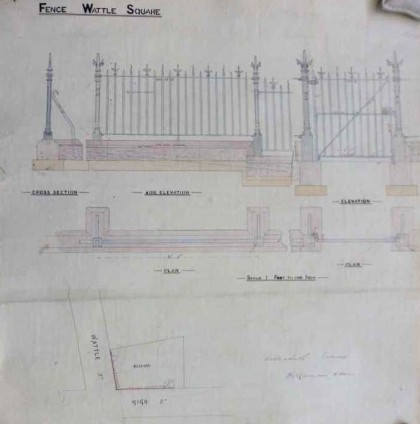
Author: Public Record Office Victoria
The Bendigo Regional Archives Centre holds a treasure trove of regional history amongst its Bendigo Council Plans and Maps collection. Here, archives officer Dr. Michele Matthews takes us through some of her favourite items from the collection:
Bendigo Council Plans and Maps
The Bendigo Council’s Plans and Maps collection is very extensive, covering a wide variety of topics spanning the 1870s to 1970s.
Among the most attractive is the plan drawn in the early 1900s showing the proposed site for the Gold Monument statue, at the conservatory end of Pall Mall (where it still stands). Rather than just a pencil sketch, this contains shades of green for the grass area and trees.

VA2389 City of Bendigo, Bendigo City Council Maps and Plans, Bundle 20, “Proposed Garden at Gold Statue”, BRAC 
VA2389 City of Bendigo, Bendigo City Council Maps and Plans, Bundle 20, “Proposed Garden at Gold Statue”, BRAC
Also amongst the collection you can find a number of plans that were submitted to Council, showing proposed alterations, additions to and relocations of 96 local houses. A permit number was given to each application. (From 1924 these numbers should correspond to the Bendigo Council’s Building Registers, which are also held at BRAC). These plans will be a boon if present-day owners ever want to research the evolution of their home.
Aspects of physical structures within the Upper Reserve in Rosalind Park appear in the plan collection too. For example, there is an undated plan for the bandstand, a 1912 plan for the “new” Baths and 1914 internal and external plans of the renovations to the caretaker’s residence. There are sketches and plans of other structures in Bendigo and surrounds including a detailed and coloured ‘Drawing of a decorative metal fence for Wattle Square in 1901.

VA 2389, Bendigo City Council Maps and Plans, Bundle 21, Drawing of Metal Fence Wattle Square
And of course you’ll also find plans for many and varied public utilities, ranging from public toilets and conveniences at Charing Cross, through to the 1916 proposed Baths at Golden Square. There are even plans for the Council’s various gravel reserves, dotted around the city.

Just some of the many other treasures you can find at the Bendigo Regional Archives Centre. - Viewing Bendigo records
The Bendigo Regional Archives Centre is a grassroots historical archives centre, where visitors can view original historical records in person.
The centre offers a personalised service with knowledgeable staff on hand to help with research needs. Their collections include historical records, documents, bound volumes, as well as maps and plans.
